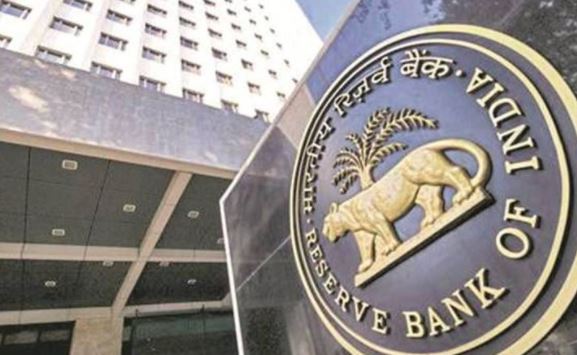Ajit Ranade
Why do people repay a loan? Firstly, because they are bound by a loan contract to repay. If they break the contract, there could be a remedy in the form of a punishment or penalty. Secondly, if the loan is against a pledged collateral, then non-repayment can result in the loss of that collateral. Often the value of the collateral is more than the value of the loan. Hence, it is better to repay rather than suffer a bigger loss. Thirdly, repayment creates good credit history. That becomes part of a public record, which is useful for getting future loans.
Indeed, in the case of microfinance loans, which have zero collateral, repayment helps the borrower remain in good standing in the eyes of the lender. Thus, repayment ensures the availability of repeat loans. In informal markets such as vegetable vending, a loan could be taken every day, used in purchasing produce from wholesale markets, selling it as retail vending, and repaying the loan with interest at the end of the day.
The fourth reason for repayment, especially valid in informal markets, could be due to sheer coercive power, or threat of physical harm. Lastly, repayment of a loan could also be due to the moralistic value, that non-repayment is a sin. Not repaying your debts is tantamount to a sin. As we can see, there are many angles to loan repayment, and the sum total of all this is what is called ‘credit discipline’.
The economy works if credit discipline is sound and ingrained in both borrowers and lenders. It is this that has to be nurtured and reinforced to ensure that credit becomes available to all who need it. It is credit creation which leads to the expansion of economic activity and growth. An individual may take a loan for education or buying a house. It represents borrowing from his or her future earnings, to build an asset (education degree or a house) for the present. Similarly, a company may borrow to fund working capital needs, or capacity expansion and loan repayment occur from future earnings.
Underlying all this is the foundation of strong credit discipline. The banking system critically depends on a credit culture, so that despite legitimate defaults on loans (due to business downturns), it can serve the needs of a growing economy. Hence when repayment is halted by official sanction, it becomes a very critical decision, with long-term and deep consequences. Thus, when a political decision is taken to give loan waivers to farmers, it has consequences on credit culture. Firstly, it is unfair on those farmers who toiled hard to repay and avoid default. Secondly, with repeated waivers, it encourages the behaviour of ignoring repayment discipline. Thirdly, it makes bankers and lenders circumspect and avoids lending altogether. It could lead to credit contraction rather than expansion.
But, in times of acute distress, there is no alternative to loan waivers as emergency medicine. Even in such cases, a moratorium or loan restructuring is preferable, rather than an outright waiver. The former leaves open the possibility of repayment, by adjusting the time-table. If a waiver which is less preferable, or a moratorium that is better for credit culture, is decided by the government, then the lender needs to be compensated from the fiscal resources, i.e., by taxpayers. Will the taxpayer agree that this in the best interest of all? What if the lender has been hurt by wilful defaulters? What if there has been fraudulent lending based on collusion and corruption?
Is it fair to impose the burden of the consequent bad loans on taxpayers? Are public sector banks and cooperative banks more prone to defaults and fraudulent lending? How do we improve governance and credit management in the public sector and cooperative banks? These are questions beyond the scope of the present column.
The question of protecting and nurturing credit culture has become relevant due to ongoing public interest litigation in the Supreme Court. The RBI as a regulator of all banks allowed a six-month moratorium on repayment of all term loans, including home loans, credit card outstanding dues and other retail loans. This was a temporary measure to help borrowers tide over problems of cash flows caused by the sudden stoppage of economic activity after the severe lockdown. However, during the moratorium, interest and repayment dues were accumulating. The total amount of loans affected is more than `38 lakh crore, so that the accrued interest during six months itself is about `2 lakh crore. This accrued interest whose payment has been postponed itself is like a fresh loan, whose interest burden in turn is about `5,000 crore.
The petitioners in the Supreme Court are seeking a waiver of interest on interest. It amounts to denting credit culture. Paying interest is equivalent to paying the time value of money. It is the interest earnings of banks that allow them to repay their depositors with interest on savings and fixed deposits. If those interest earnings are denied, the banks will suffer and will have to ask for a fresh equity infusion from their owners, shareholders. Since the government is the principal shareholder of public sector banks, it amounts to asking taxpayers for help. So, we are back to square one. Rather than imposing an unfair burden on banks, it is better than the government take it squarely on their chin, and give relief directly from the exchequer, i.e., the taxpayer funds. Otherwise, waiving of interest will cause harm to the credit discipline and to a culture built painstakingly over the years.
At a time of recession, when the banking system may have additional bad loans amounting to `4 lakh crore by next March, it is critically important to shield banking from the ill effects of waivers and moratorium extensions. As the RBI itself submitted to the court in its affidavit, the problem now calls for a comprehensive loan restructuring package through fiscal resources, rather than extending waivers and vitiating credit culture. It is imperative that the court recognises this larger danger.
The writer is an economist and Senior Fellow, Takshashila Institution. The Billion Press.






































